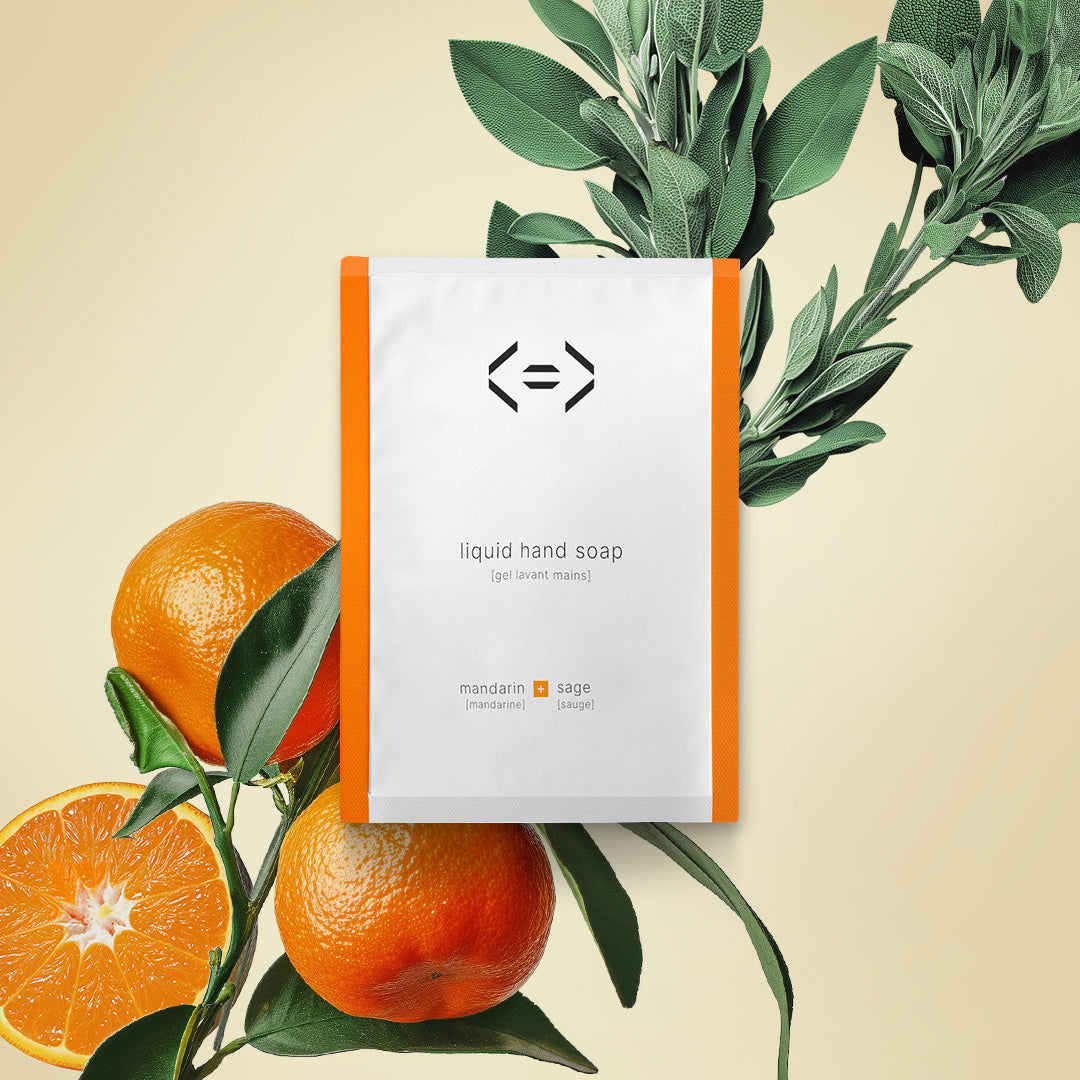
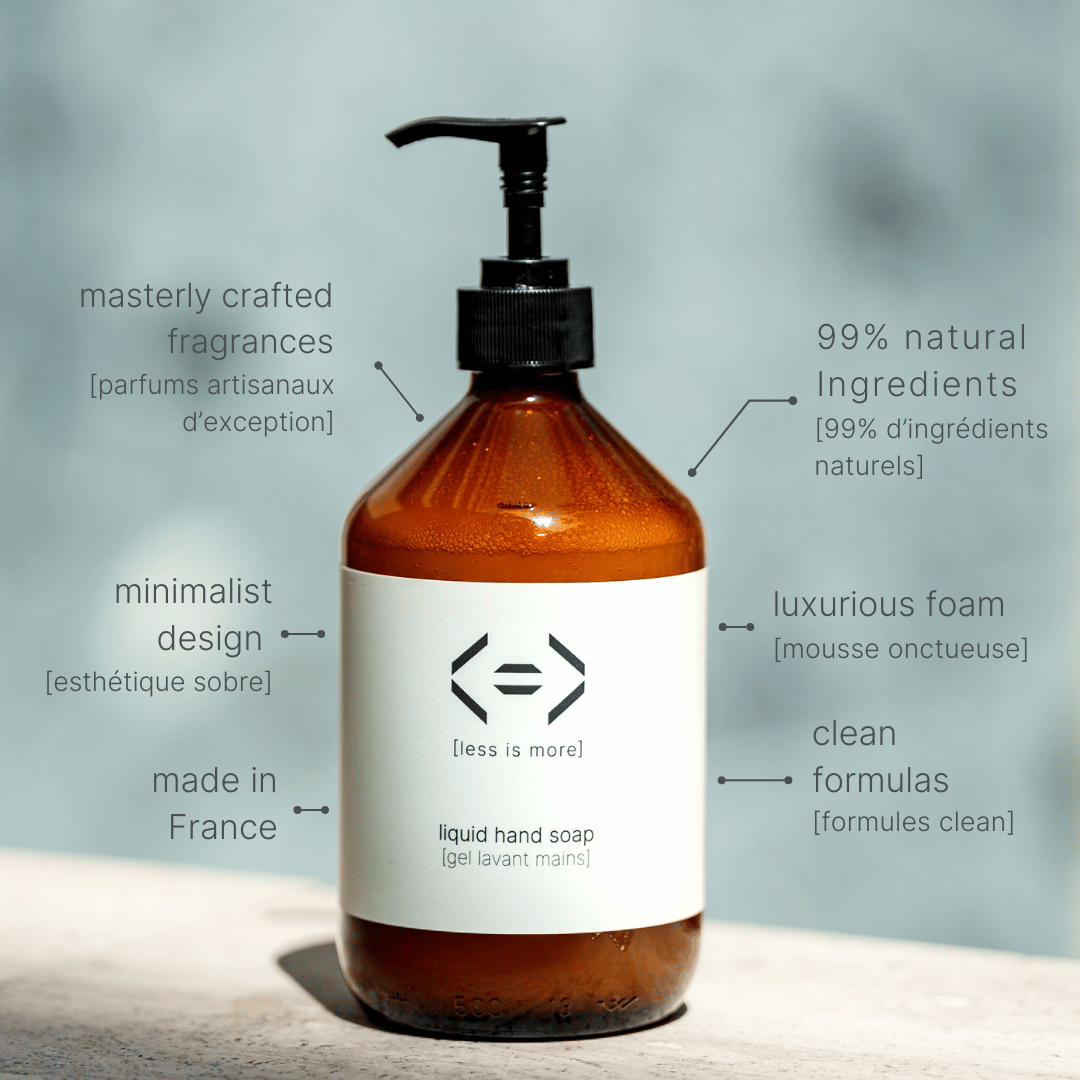
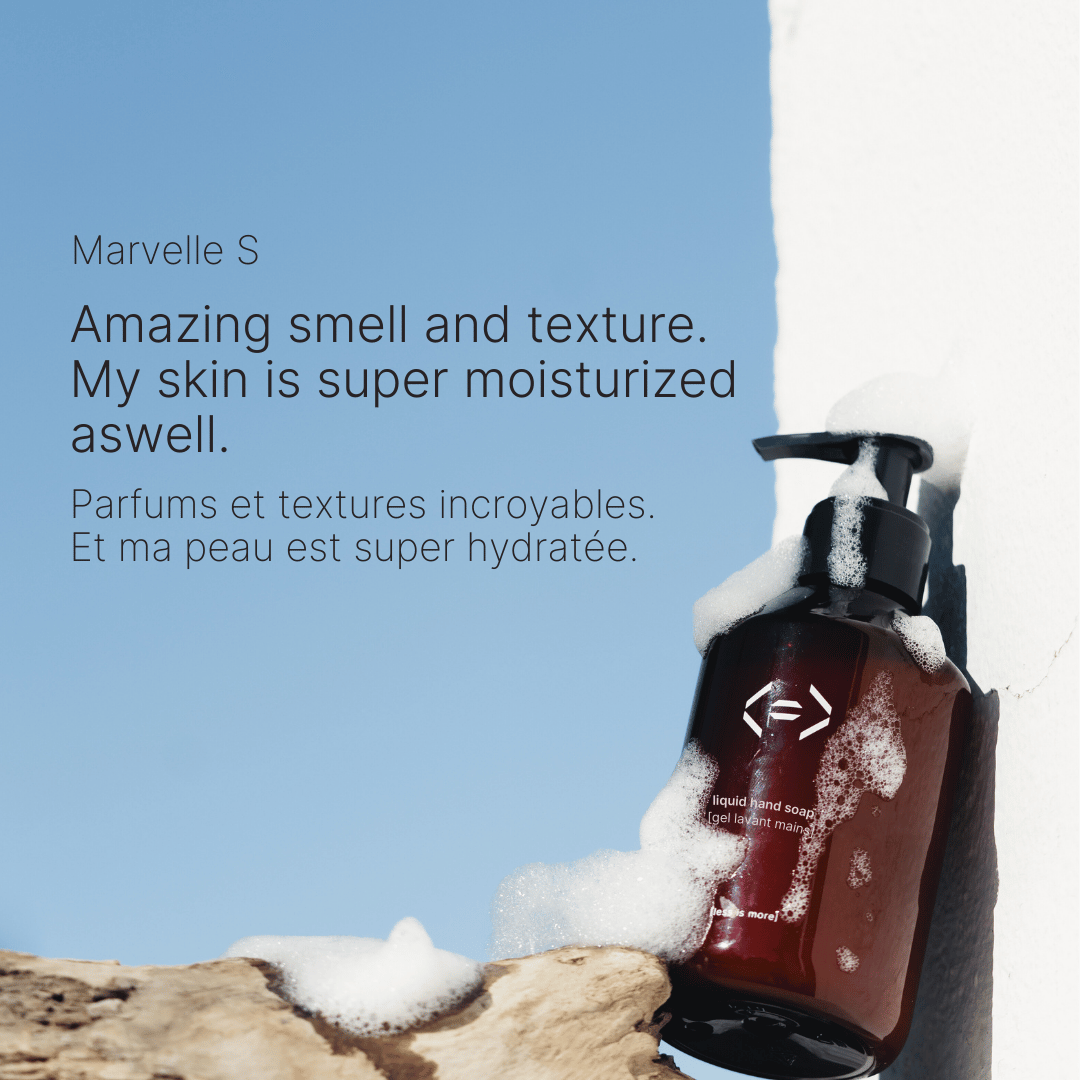
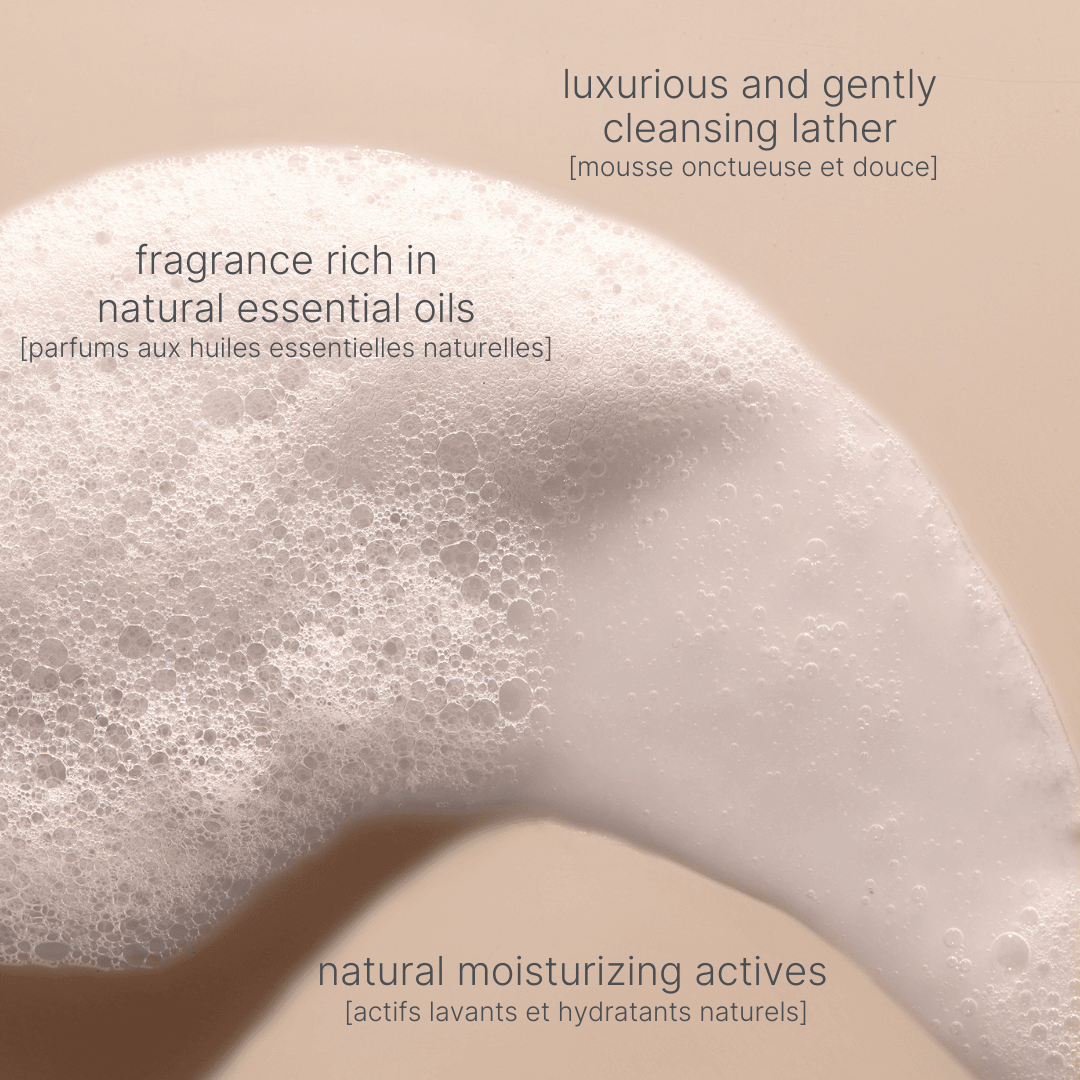
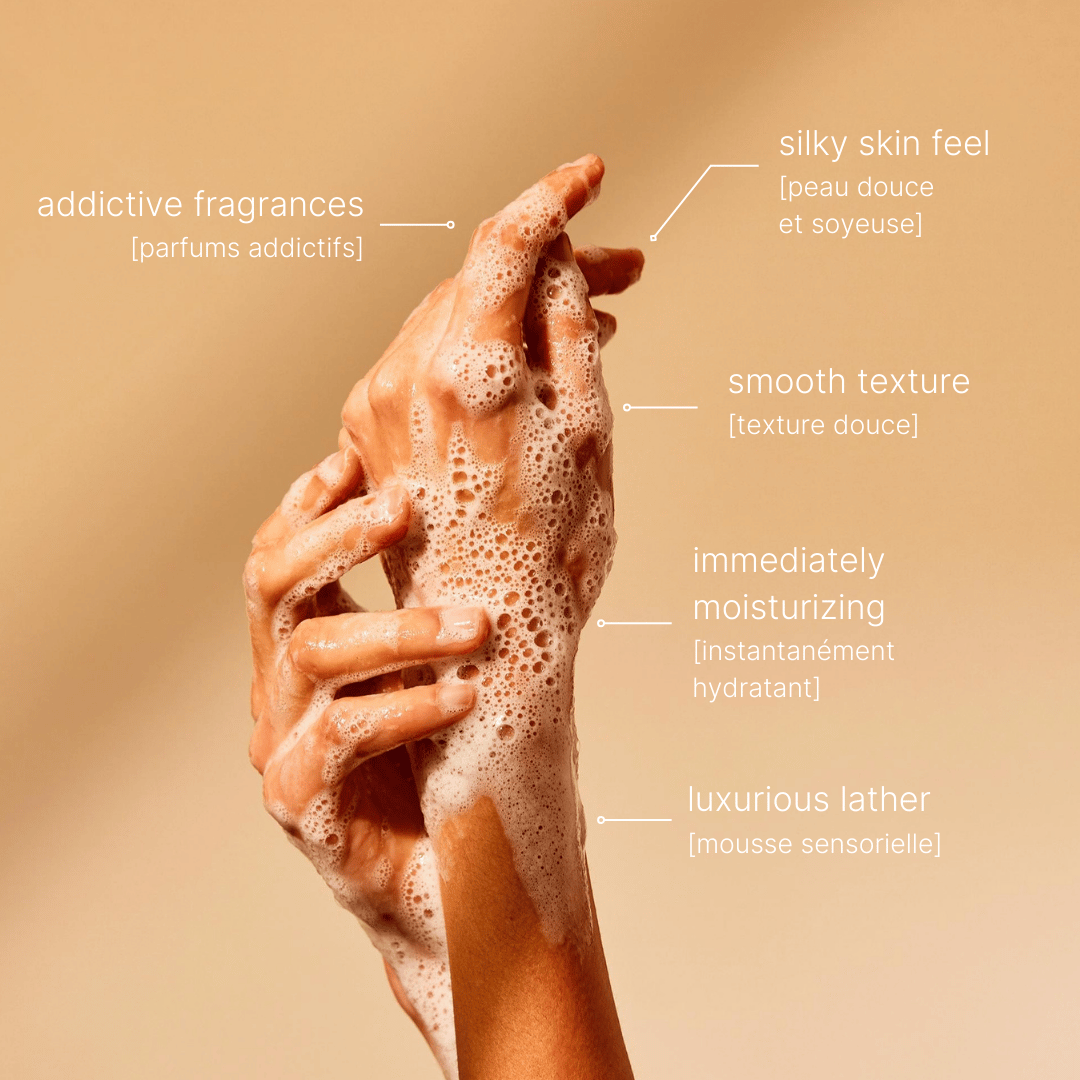
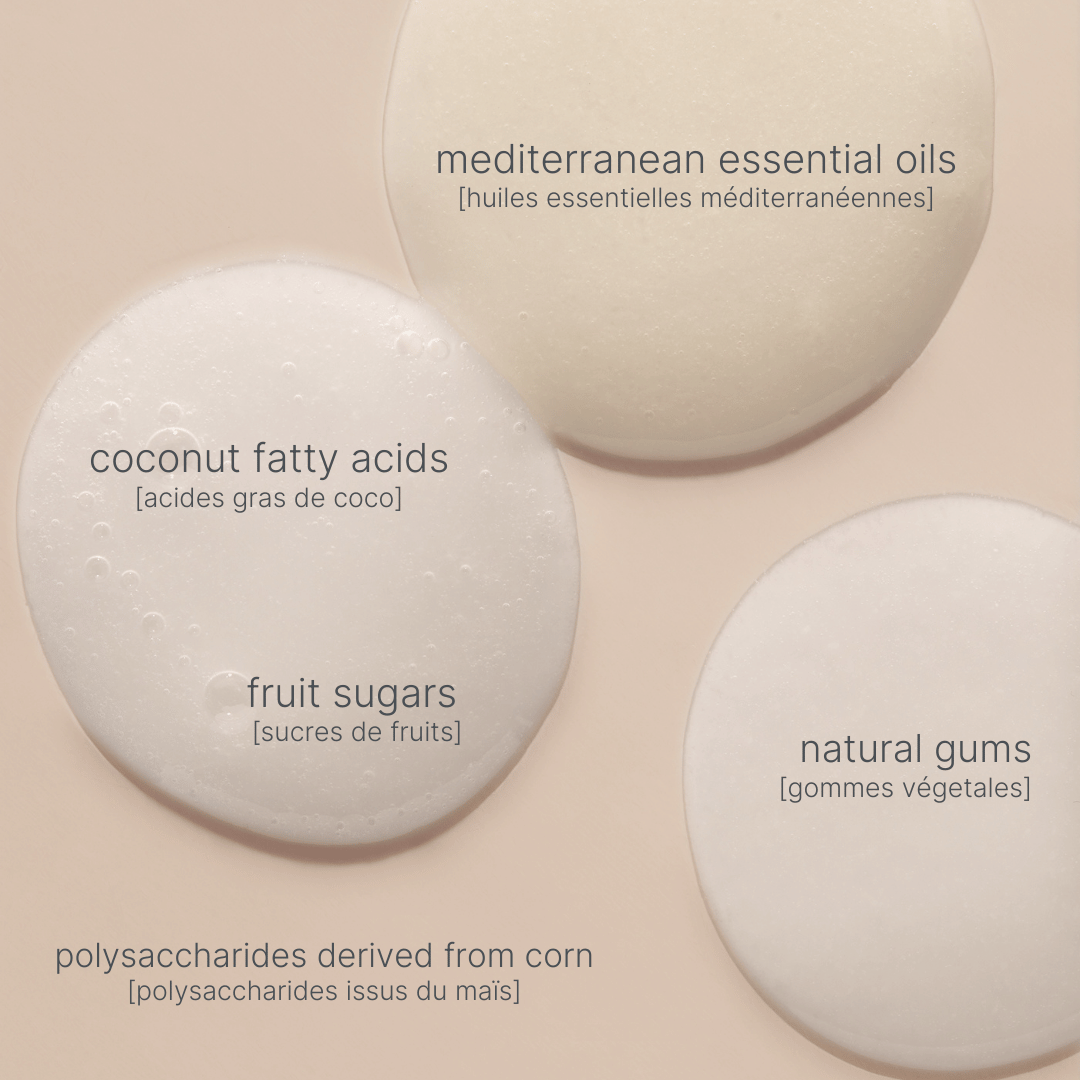
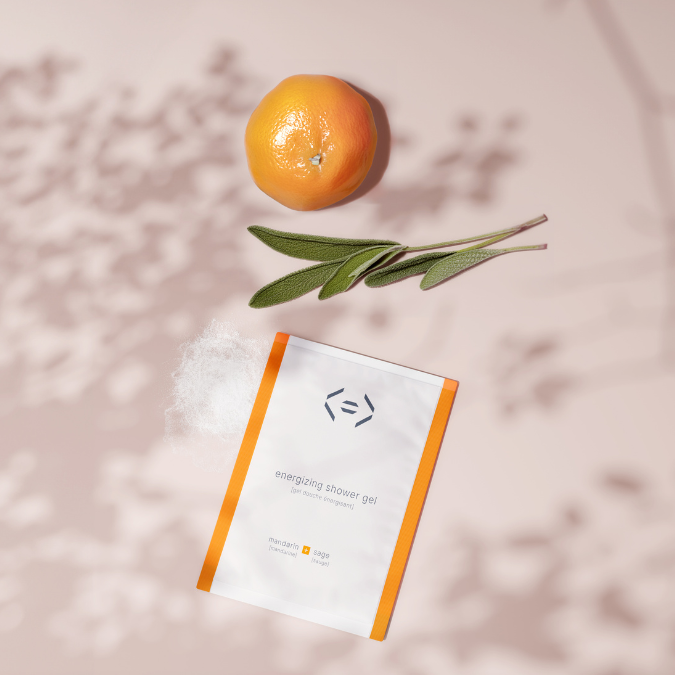
![juicy liquid hand soap [mandarin + sage]](http://lessismore.co/cdn/shop/files/22_c3c7046c-13cc-4ddc-bfee-32314e1da3fd.jpg?v=1764664511&width=1080)
juicy liquid hand soap [mandarin + sage]
A cleansing experience that truly boosts your mood. Its fluid-gel texture develops a rich lather that rinses off easily to leave your hands feeling soft, moisturized and delicately fragranced with the juicy burst of mandarin and the aromatic fusing facets of purifying sage.

Secure Payments

Mindful Care
A pure formula for you, with reduced impact on the planet. Every detail is designed to combine effectiveness, safety and environmental respect.
Our hand soap is formulated without SLS, without parabens, without artificial dyes, without microplastics and without animal-derived ingredients. Unlike traditional liquid soaps, it cleanses gently without drying out or disturbing the natural balance of the skin.
We have replaced irritating agents with natural-origin and biodegradable ingredients, carefully selected to preserve your skin's hydration while respecting the environment.
Our packaging is designed to combine functionality, durability, and respect for the environment.
Eco-friendly refills:
- Made from paper sourced from sustainably managed forests.
- Fully recyclable, they reduce plastic waste.
- Designed for easy mailing – they fit in all mailboxes.
Reusable bottles:
- 250 ml: Made from 100% recycled PET plastic to limit the production of new plastics.
- 500 ml: An elegant glass bottle, sturdy and durable.
By combining our refills with these bottles, you actively contribute to waste reduction while opting for a timeless and functional design.
With only 25g of powder, you obtain 250ml of hand soap, which is approximately 100 washes. Less packaging, more efficiency for clean and soft hands, day after day.
We believe in the quality of our products and in our customers' satisfaction. If for any reason you are not completely satisfied, you have 30 days to return your product—hassle-free. We are committed to offering you a risk-free shopping experience with a simple and quick return process.
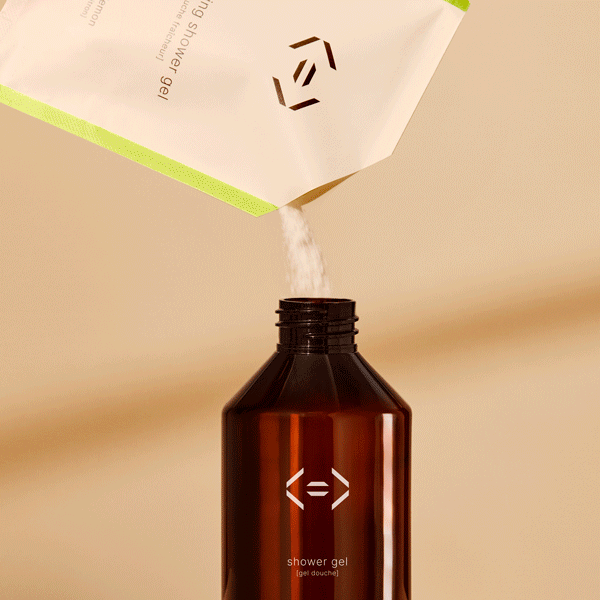
A revolution: powdered care activated at home
Forget traditional liquid soaps made up of 80% water and unnecessary ingredients. Our concentrated powder formulas contain only the essentials to clean and protect your hands. Add water, shake, use. A simple act, with reduced impact.
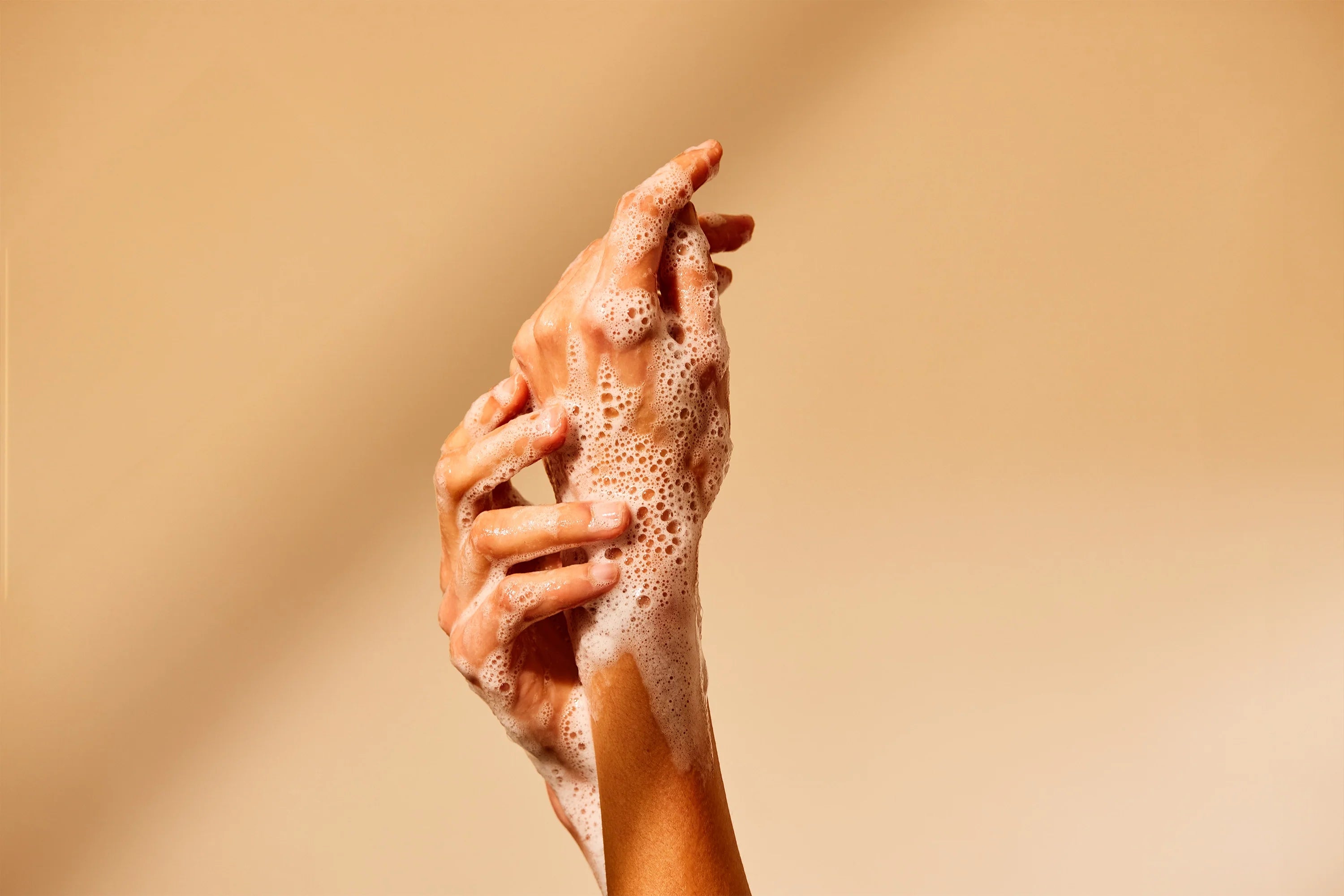
Natural ingredients, care that respects you
Say goodbye to disposable plastic bottles and hello to an intelligent, sustainable solution. Thanks to our eco-friendly and reusable packaging, you reduce your environmental impact while enjoying a high-end experience. It’s good for you and better for the planet.
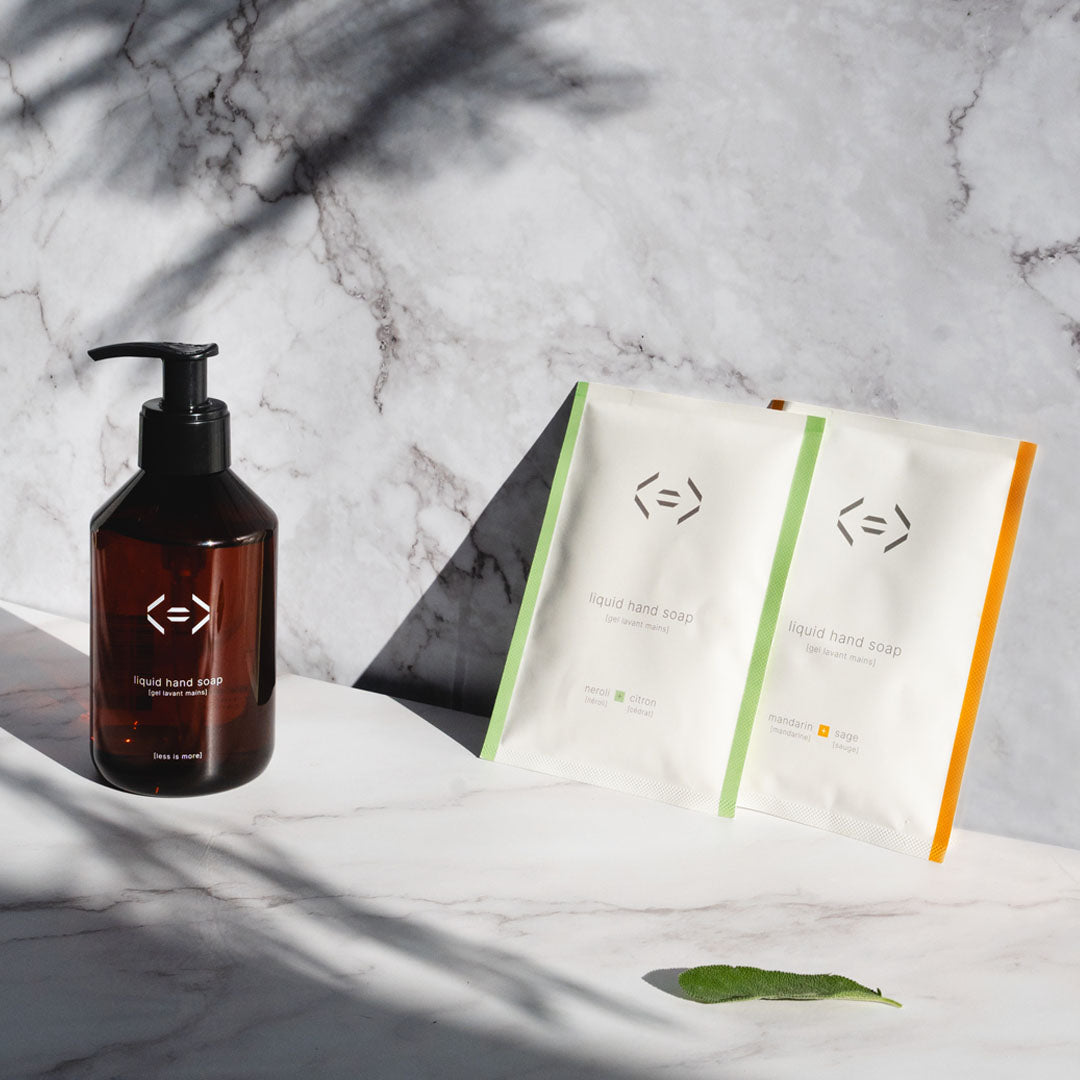
A care that lasts as long as your commitment
Imagine a hand soap that combines gentleness, effectiveness, and ecological commitment. Every detail—from the formulation to the packaging—has been designed to reduce our environmental impact while taking care of your skin. A simple act, a positive impact every day.
Recognized and Approved
They Talk About Us

"Reducing the active ingredients into powder - bravo for this French innovation."

"This shampoo changes our life!"

"A virtuous idea ! As sustainable as solids, as practical as liquids."

"Stylish, yet sustainable."
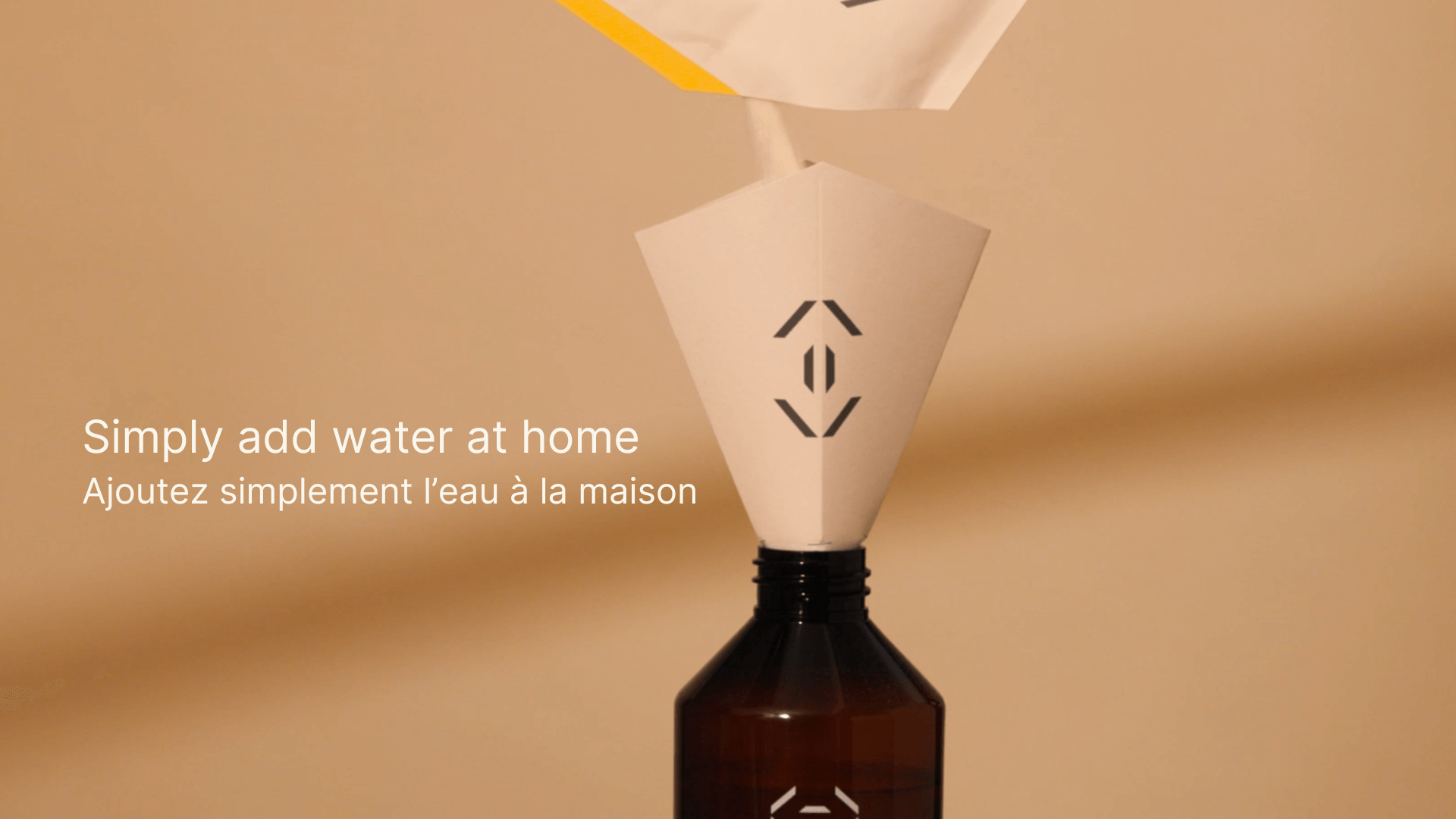
How does it work?
Less is More Hand Soap vs. Traditional Liquid Soap
+99% natural origin, free from SLS, colorants, silicones and parabens
Contains questionable substances like SLS, parabens, and silicones
Concentrated powder formula, activated with water at home
Mainly water and unnecessary additives
Reduces carbon footprint by 90%
Unnecessary transport of water and single-use plastic packaging
Recyclable paper refill sachet
Non-recyclable plastic bottles, often single-use
Glass or recycled PET bottles, designed for reusability
Disposable bottles ending up as plastic waste
25 g of powder = 250 ml of liquid hand soap (about 100 uses)
250 ml of liquid hand soap (about 100 uses)
Not tested on animals and no animal-derived ingredients
May contain animal derived ingredients
Gentle, non-irritating formulation, scalp-friendly
Can cause irritation due to harsh chemicals
Your questions, our answers
Can I return a product if I'm not satisfied?
Yes, we have a money back guarantee and accept returns within 30 days of purchase. Find out more here
How do I mix the liquid hand soap?
- Add water: Fill about one third of the bottle with drinking water*.
- Add the powder: Pour 25g of powder of hand soap into the bottle.
- Top up with water: Fill up to the shoulder of the bottle (approximately 225 ml for a total of 250 ml).
- Close and shake: Seal the bottle and shake vigorously 10 times until a homogeneous mixture is obtained.
- Let it sit: Wait 20 minutes to allow the formula to fully dissolve.
- Shake again: Shake 5 times to ensure everything is perfectly mixed.
- Use and enjoy: Your hand soap is ready to use!
*Tap water at room temperature is sufficient, but filtered water is recommended for an optimal experience.
After 20 minutes, the product is ready for use, although the final texture will fully develop in 24 hours.
How long does a hand soap refill last?
A refill of 25g of powder creates 250ml of liquid soap, which is approximately 100 uses. An economical and ecological solution that reduces waste while providing an effective and pleasant washing experience.
Is it suitable for sensitive skin?
Our mild hand soap is formulated without SLS, without parabens, without silicones, and without questionnable ingredients, making it ideal for sensitive skin. Its gentle and minimalist composition respects the skin's natural balance while leaving a feeling of cleanliness and comfort after every wash.
Is it suitable for the whole family?
Yes! Our mild hand soap is suitable for all skin types, from the age of 3. Its minimalist formula, enriched with natural and soothing ingredients, cleans effectively while respecting the skin's balance. It is perfect for safe daily use.
Do you still have questions?
Take the time to check out our FAQ and our values to see if you can find an answer to your question.
If you wish to contact us, you can do so via our contact page.